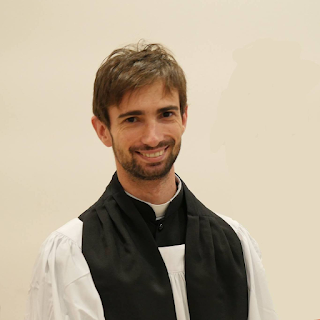Reading
Luke 4:31-37
31 Then he went down to Capernaum, a town in Galilee, and on the Sabbath he taught the people. 32 They were amazed at his teaching, because his words had authority.
33 In the synagogue there was a man possessed by a demon, an impure spirit. He cried out at the top of his voice, 34 “Go away! What do you want with us, Jesus of Nazareth? Have you come to destroy us? I know who you are—the Holy One of God!”
35 “Be quiet!” Jesus said sternly. “Come out of him!” Then the demon threw the man down before them all and came out without injuring him.
36 All the people were amazed and said to each other, “What words these are! With authority and power he gives orders to impure spirits and they come out!” 37 And the news about him spread throughout the surrounding area.
Comment
After the hostility encountered in Nazareth at the beginning of his ministry, Jesus descends towards the lake of Gennesareth, on whose banks the city of Capernaum is located. Here, as he usually does, on Saturdays, he teaches in the synagogue. If in Nazareth the listeners "were amazed at the gracious words that came from his lips" (Lk 4:22) in Capernaum they are struck by his teaching because he speaks "with authority" (v. 31).
What does this speaking with authority mean? Jesus does not limit himself, as was the custom at the time, to recalling the commentaries on the Scriptures of the doctors of the past. He interprets the word, makes it current and applies its prophetic content to himself, just as in Nazareth he identified himself with the messiah announced by the prophet Isaiah.
In the synagogue of Capernaum, the testimony of the truth of his words is given by a devil, who recognizes him as "the Holy One of God" (v. 34). While some doctors of the law, as happened in Nazareth, deny his divine sonship, the demons several times in the Gospel narrative make a completely orthodox profession of faith. Jesus is forced to silence them, to prevent his opponents from thinking that he casts out demons in the name of the prince of demons (Mt 12:24).
What is disconcerting is precisely the possibility of recognizing who Jesus really is, but of belonging to a kingdom completely opposed to him. Precisely about this the apostle James warns: "You believe that there is one God. Good! Even the demons believe that—and shudder" (Jas 2:19). Peter himself, had recognized in Jesus "the Messiah, the Son of the living God" (Mt 16:16) receives from the Lord the appellation of "Satan", when he tries to dissuade him from facing his passion. All this attests that faith proclaimed in words is not enough. Jesus calls us to follow him, along the itinerary traced by his earthly existence, in the fulfillment of the Father's will.
The possessed of Capernaum is freed after being thrown to the ground, in front of everyone (v. 35); this is like an image of humility before God and before men, which alone can lead us to liberation from evil. In the parallel passage of Mark, it is said that the devil tore that man by shouting loudly before going out of him (Mk 1:26), but here it is specified that the devil leaves him "without doing him any harm".
When we humbly entrust ourselves to Christ's hands, our life regains freedom. It is not a question of practicing a dark religiousness steeped in suffering, nor of doing reckless violence to our spirit, but of anticipating the peace and joy of the kingdom of God, wresting their control over humanity, until God's lordship is definitively re-established with the return of his Christ.
Prayer
O Lord Jesus, we recognize you as the Son of God and the king of heaven and earth; may your grace come to the aid of our weakness, so that we can profess our faith not only with our tongue but also with our works. Amen.
- Rev. Dr. Luca Vona

